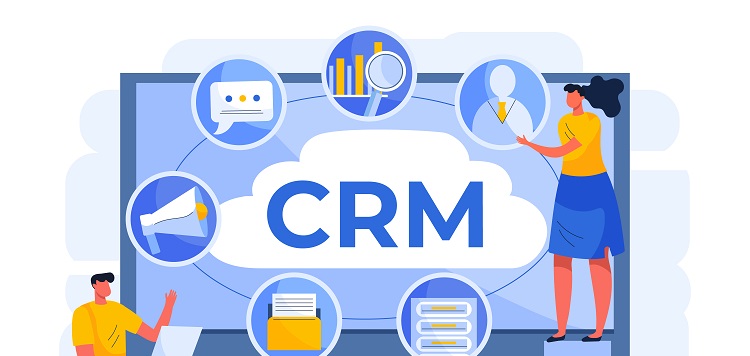In today’s business landscape, customer relationship management (CRM) software has become an essential tool for managing sales and customer interactions. With a vast array of features and capabilities, modern CRM software promises to help businesses enhance customer engagement and loyalty, boost sales productivity, and drive profitable growth. However, as companies struggle to keep up with the fast pace of technological change, they often end up experiencing a wide range of challenges that can undermine the efficacy and value of their CRM systems. In this article, we will outline several of the most common pitfalls that businesses face while managing their CRM tools.
Scope drift, dis-integration, and reduced data quality are some of the biggest challenges that companies face while implementing CRM software. In the rush to offer more capabilities, companies make acquisitions and forge partnerships to pull services together. As a result, many of these applications lack seamless integration, which is critical for providing a holistic view of the customer. This lack of integration often leads to reduced data quality and scattered information across various systems, making it tough for organizations to make data-driven decisions.
Siloed Data Is a Poor Business Outcome
Siloed data is one of the most significant drawbacks in modern business. It refers to customer data that is stored in separate and disconnected systems. This disjointed approach can lead to errors in data input, duplication, and inaccuracies in data, which can negatively impact customer experience. Siloed data also leads to disjointed and uncoordinated marketing and sales efforts, hindering businesses’ ability to leverage valuable customer insights.
Rising Software and Implementation Costs
CRM software has become more complicated and sophisticated over the years. As a result, resource requirements and implementation costs have skyrocketed, making it much harder for small and mid-sized businesses to justify their investments. This often leads to budget constraints, suboptimal CRM configurations, and reduced access to essential CRM tools that can help companies maximize their value.
One of the challenges of using modern CRM software is its complexity. Many of the leading CRM tools over-promise and under-deliver. They offer a vast number of features and capabilities, but many of them can be extraneous, confusing, and difficult to use. This complexity can lead to confusion, frustration, and decreased productivity and adoption, which can negatively affect businesses’ ability to achieve their CRM objectives.
Overpromising and under delivering
Many of the leading CRM tools over-promise and under-deliver, leading businesses to expect much more than they can deliver. This often results in CRM tools that do not live up to their promises, poorly-designed interfaces, and inadequate user support.
The Purpose of CRM Tools
Fundamentally, CRM tools are designed to manage customer data and track interactions up to the point of sale. However, the scope of CRM software has expanded in recent years, providing a growing number of features, capabilities, and integrations. Although this expansion has opened up many opportunities for businesses, it has also created many challenges in effectively managing the CRM ecosystem.
Red Flags of Decreasing Efficacy
Decreasing efficacy is a red flag, indicating that your CRM tool is not keeping up with your company’s needs. Businesses must identify these signs early on and make the necessary adjustments to their CRM configurations to ensure that they align with their business goals.
Integration as an Enterprise Capability
Think of CRM as an enterprise capability, and as such, it should be a fully integrated feature of the ecosystem of enterprise software you’re running. When implemented as a part of an integrated software solution, businesses can achieve significant efficiencies in data management and gain actionable insights into customer behavior and preferences.
Leveraging CRM as a Native Application
As a native application within your platform, your CRM application can provide new insights based on rich, high-quality data that represents every step of the customer’s journey – before, during, and after the sale. This end-to-end view can help businesses better understand how to serve their customers effectively and boost their loyalty and retention.
As businesses continue to adopt CRM software, they must be aware of the common pitfalls and challenges associated with it. By acknowledging these issues, organizations can make informed decisions when selecting a CRM tool that aligns with their business goals, needs, and budget constraints. With careful planning and implementation, businesses can leverage CRM software to streamline their processes, enhance customer engagement, and drive sustainable growth and profitability.

